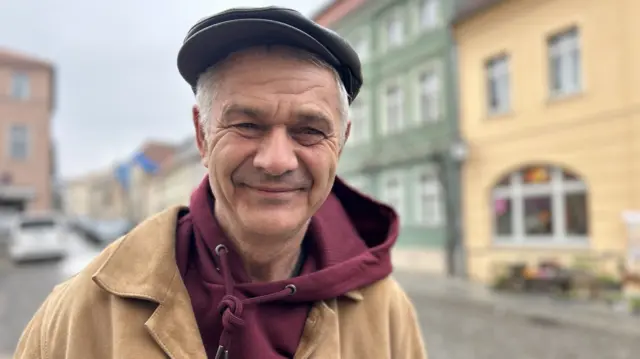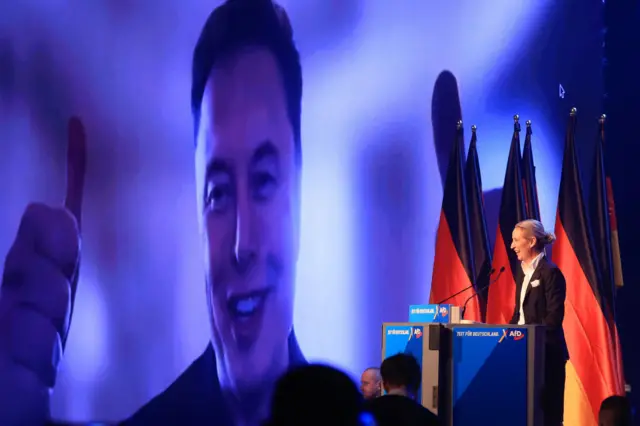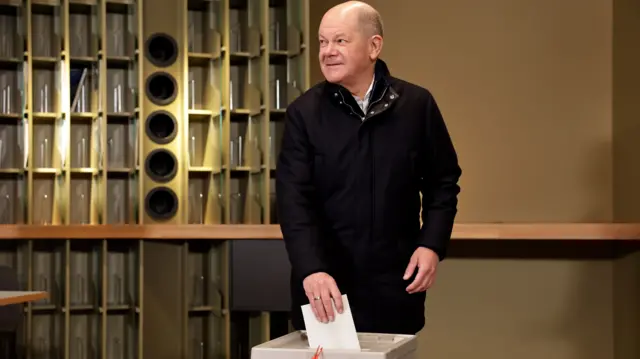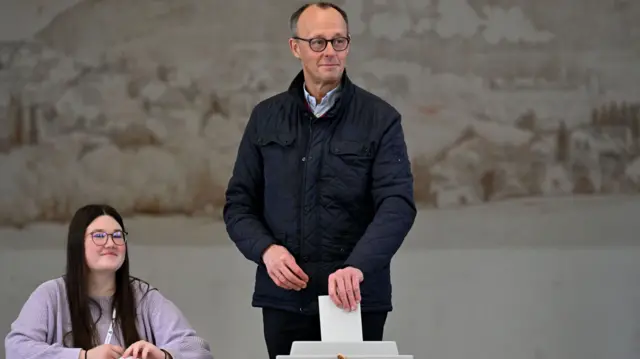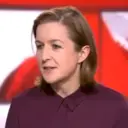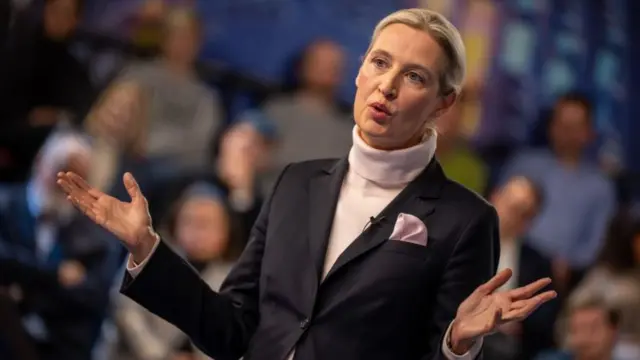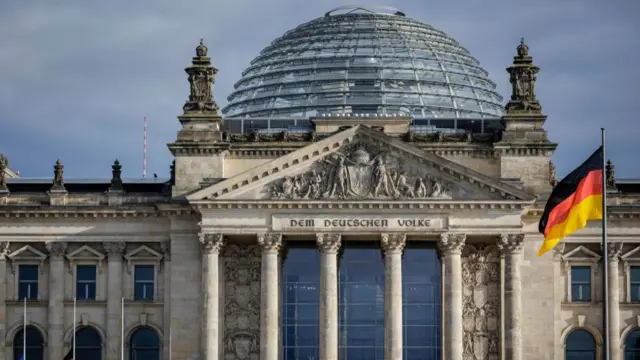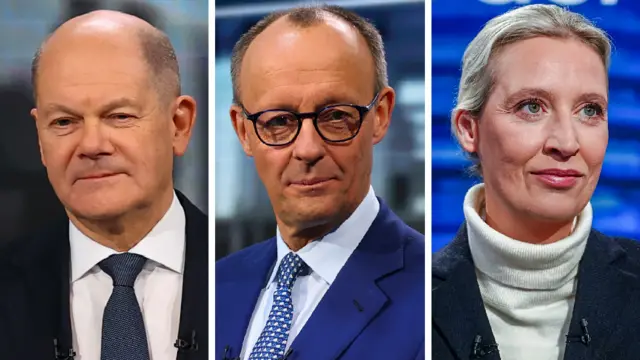Polls close in less than two hourspublished at 15:27 GMT 23 February
It's approaching 16:30 in Berlin. There are now under two hours left until poll stations close in Germany at 18:00 local time (17:00 GMT).
If you are just joining us, let's get you up to speed.
German Chancellor Olaf Scholz's government lost a vote of confidence in parliament in December and now the 66-year-old is up against four others vying for the top role in this election.
The frontrunner in the race is Friedrich Merz, with the conservative Christian Democrats (CDU) favourite to become the biggest party in power.
Far-right AfD, and their first candidate for chancellor Alice Weidel, are tipped to come second.
Robert Habeck's Greens has taken a strong line on aid for Ukraine, and he has forcefully criticised Friedrich Merz for relying on votes from the AfD in parliament. While Sahra Wagenknecht and her BSW party may struggle to reach the 5% national threshold to get into parliament.
Stick with us as we bring you the latest developments and analysis.
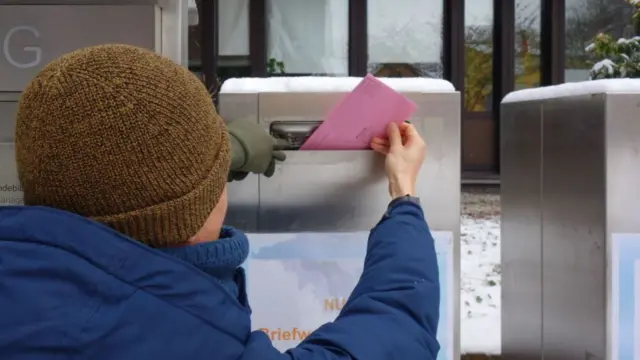 Image source, Getty Images
Image source, Getty Images